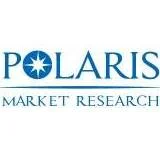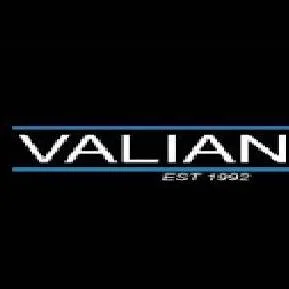The global epithelioma treatment market was valued at USD 5.36 billion in 2024 and is projected to reach USD 9.73 billion by 2030, expanding at a CAGR of 10.4% from 2025 to 2030. This robust growth is primarily driven by the increasing prevalence of skin cancers, continuous innovations in therapeutic modalities, and rising awareness of the importance of early diagnosis and prevention. Supportive government initiatives promoting skin cancer screening programs and access to advanced treatment options are further accelerating market development. According to data from the American Cancer Society, approximately 5.4 million cases of basal and squamous cell skin cancers are diagnosed annually in the U.S., highlighting the significant healthcare burden these conditions pose. Additionally, annual deaths due to these cancers in the U.S. range between 2,000 and 8,000, with squamous cell carcinoma (SCC) contributing more substantially to mortality rates.
The increasing global incidence of skin cancers, including basal cell carcinoma (BCC) and SCC, remains the most critical factor driving the epithelioma treatment market. These non-melanoma skin cancers are among the most prevalent malignancies worldwide, with lifestyle changes and environmental factors particularly prolonged exposure to ultraviolet (UV) radiation contributing significantly to their rise. The depletion of the ozone layer has intensified UV radiation exposure, elevating the risk of skin damage and subsequent carcinogenesis. Moreover, according to a systematic review published by the World Health Organization (WHO) and the International Labour Organization (ILO) in November 2023, individuals with occupational exposure to solar UV radiation face a 60% higher risk of developing non-melanoma skin cancers compared to those without such exposure, emphasizing the urgent need for protective measures and early interventions.
Key Market Trends & Insights:
- Regional Insights: North America dominated the global epithelioma treatment market in 2024, accounting for a 37.5% revenue share, driven by advanced healthcare infrastructure, high disease awareness, and widespread adoption of innovative therapies. The Asia Pacific region is projected to register the fastest CAGR of 11.5% during the forecast period, supported by improving diagnostic facilities, rising healthcare investments, and a growing patient base.
- Type Insights: The basal cell epithelioma segment held the largest market share of 61.0% in 2024, owing to its high incidence and established treatment options. The squamous cell epithelioma segment is expected to grow at the fastest CAGR of 11.8%, driven by the increasing occurrence of SCC and advancements in targeted therapies.
- Drug Class Insights: Hedgehog pathway inhibitors dominated the market with a 41.2% revenue share in 2024, supported by strong efficacy in advanced basal cell carcinoma cases. Immune checkpoint inhibitors are anticipated to grow at the highest CAGR of 12.5%, owing to their expanding use in treating advanced and metastatic epithelioma.
- Distribution Channel Insights: Hospital pharmacies led the market in 2024, capturing a substantial share of 51.8%, due to the increasing number of hospital-based treatment procedures and oncology centers. Online and specialty pharmacies are projected to witness the fastest growth at a CAGR of 13.3%, reflecting the rising adoption of e-pharmacy platforms and accessibility to specialty oncology drugs.
Order a free sample PDF of the Epithelioma Treatment Market Intelligence Study, published by Grand View Research.
Market Size & Forecast:
- 2024 Market Size: USD 5.36 Billion
- 2030 Projected Market Size: USD 9.73 Billion
- CAGR (2025-2030): 10.4%
- North America: Largest market in 2024
- Asia Pacific: Fastest growing market
Key Companies & Market Share Insights:
The global market is moderately consolidated, dominated by major pharmaceutical players such as:
- Bristol-Myers Squibb Company
- Merck & Co., Inc.
- Novartis AG
- Amgen Inc.
- Pfizer Inc.
These companies collectively hold a significant market share due to strong research and development capabilities, robust product pipelines, and continuous innovation in cancer therapeutics.
- Amgen Inc. focuses on biologics and targeted therapies, including MVASI, a biosimilar to bevacizumab approved for specific oncology applications.
- Pfizer Inc. offers a broad range of oncology treatments, including targeted therapies and immunotherapies for epithelioma, aimed at improving survival rates and patient quality of life.
- Leading companies are pursuing strategic collaborations, mergers, and acquisitions to expand their product portfolios, strengthen geographic presence, and enhance R&D capabilities. Continuous investment in next-generation therapeutics, personalized medicine, and clinical trials is fostering innovation and driving sustained market growth.
Explore Horizon Databook – The world's most expansive market intelligence platform developed by Grand View Research.
Conclusion:
The global epithelioma treatment market is poised for strong growth, driven by the increasing incidence of skin cancers and continuous advancements in therapeutic innovations. Rising public awareness regarding early detection and government support for cancer research are further enhancing market expansion. The growing adoption of targeted therapies and immunotherapies, such as hedgehog pathway and immune checkpoint inhibitors, is transforming treatment approaches and improving patient outcomes. Regional markets like Asia Pacific are expected to witness significant growth due to improving healthcare infrastructure and rising diagnostic capabilities. Moreover, leading pharmaceutical companies are investing heavily in R&D and strategic collaborations to strengthen their product portfolios. Overall, the market is set to experience sustained growth as the focus on precision medicine and early intervention continues to rise globally.






